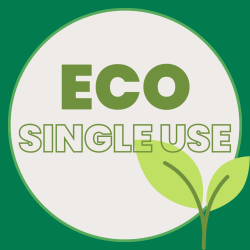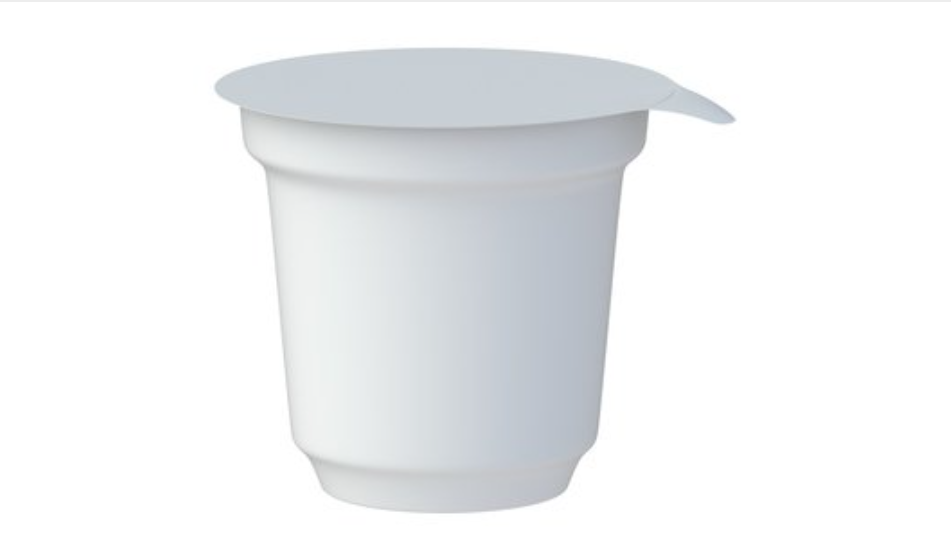Single-use plastic and hotels

Hotels use a lot of single-use plastic – in fact the global hotel industry generates 150 million tonnes each year. And a lot of that ends up in the sea. But what are the regulations, challenges and the solutions to this problem?
What is single-use plastic? Anything plastic that is used but then not reused. Think of plastic cutlery, cotton buds, straws and stirrers, disposable plates, cups, trays, spoons, forks, knives…
Where does single-use plastic end up? Unfortunately, even though most single-use plastic can be recycled, only about 10 per cent of it actually is, so around 32 per cent of all plastic packaging ends up in the sea each year. And according to World Economic Forum (2016), it is estimated there could be more plastic in the ocean than fish by 2050.
The United Nations defines our volume of plastic waste as a global crisis, ranking it a major threat to the environment and unfortunately the global hotel industry generates 150 million tonnes of single-use plastic each year.
The list of items on that list included single-use plastic cutlery (forks, knives, spoons and chopsticks) plates, straws, cotton bud sticks made of plastic, as well as oxo-degradable plastics, food containers and expanded polystyrene cups.

What are oxo-degradable plastics? Well, they are basically not biodegradable. They try to mimic that by quickly breaking it down into smaller pieces, but actually they just end up being microplastics left around indefinitely.
When do the bans come into force? They’ve been in stages. In Scotland it has been in action since 2022. In England, it came into force in October 2023. And Wales banned most single-use plastics from autumn last year, but the following items won’t be banned until some point this year – carrier bags, polystyrene lids for cups and takeaway food containers, and oxo-degradable products…
And elsewhere? Last April Washington was the first to ban single-use packaging in hotel rooms in the US. So from 2027, for hotels larger than 50-keys and from 2028 for smaller hotels, there will be financial fines in place. In 2019 a similar law was also passed to ban the small shampoo bottles in hotels – that came into effect last year for hotels larger than 50 rooms and this year for those with fewer than 50 rooms.
This year will see the same rules for New York (although it will be next year for the smaller hotels in New York).
Also president Biden has called for actions to “reduce and phase out” procurement of single-use plastic products with his Executive Order 14057. This aims to “reduce the procurement, sale and distribution of single-use plastic products and packaging with a goal of phasing out all single-use plastic products on Department-managed lands by 2032.”
How does banning single-use plastics impact hotels? The average Co2 per night in a UK hotel is approximately 11.5kg according to DEFRA and reducing that can be done by looking at energy reduction, but also looking at waste. Think about a hotel room with water bottles, toiletry bottles, stirrers, earbuds, turndown gifts, packaged tea and coffee, laundry bags, slipper wraps. And that’s just the bedrooms. In the public spaces you might have water bottles, cups, straws, stirrers and then behind the scenes you are looking at packaging, cling film, water bottles, plastic cups, single-use wipes, plastic gloves and masks. It means hotels have to find other ways of presenting / packaging and ultimately look for different, responsible, suppliers.
Lots of impact reports across the sector suggest hotels are tackling the issue… Yes which is positive news and in a recent YouGov survey 76 per cent of diners prioritise certified plastic removal practices in the hospitality industry. Recognising this shift in consumer expectations, hotels are now actively seeking ways to reduce the reliance on single-use plastics, both operationally and in guest behaviour.
(Source: Felicity Cousins – https://sustainablehotelnews.com/feature/focus-on-single-use-plastic-and-hotels/)

Which products are being banned?
- Food containers made of expanded polystyrene
- Cups for beverages made of expanded polystyrene
- Single-use plastic cutlery (forks, knives, spoons and chopsticks)
- Single-use plastic plates, bowls, cups, trays
- Plastic straws…
As a consequence, what packaging products are alternatives?.
Well, let’s think about Areca palm leaf eco-friendly tableware!

WHY?
- Palm leaf tableware is made of fallen palm leaves of the areca trees that have naturally been shed and would otherwise be wasted or burned, so they don’t contribute to deforestation or harm local ecosystems or species. They are circular economy products.
- They are the best disposable plates since they break down in a fraction of the time and are completely biodegraded within 6-8 weeks. Your palm leaf plates can also be composted and turned into nutrient-rich soil for your house and garden. There is no more waste of palm leaf plates left as they get completely decomposed within a few weeks. Because there are no coatings or toxins on this product, it degrades swiftly in landfills and composters, allowing for further recycling of a valuable natural resource.
- An ideal disposable option for all catered events, including take-away foods. The stylish, leak-proof, and elegant palm leaf plates perfectly blend with the outdoor events making them the ideal option for wedding ceremonies and parties.

100% ECO-FRIENDLY & BIODEGRADABLE
STYLISH, ELEGANT, LEAK-PROOF
DURABLE – CHEMICAL FREE – COST EFFECTIVE
LESS CARBON AND WATER FOOTPRINT
Our factories are located in Binh Dinh and Quang Ngai provinces, products are being exported to the USA, Australia, the Netherlands, Canada…
- Products are meeting FDA standards. Safe to use right after tearing the packaging without being washed.
- Non-toxin was found (test report will be provided)
Contact us for the best price from manufacturer: info@eco-singleuse.com or eco.palmleaf.plate@gmail.com





